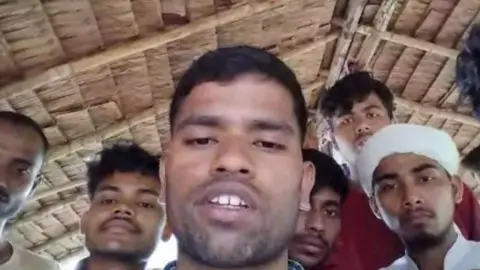Terrifying Deportation: Rohingya Refugees' Harrowing Journey Back to Myanmar
Noorul Amin last spoke to his brother on 9 May, learning that his brother, Kairul, and four relatives were among a group of 40 Rohingya refugees allegedly deported by the Indian government to Myanmar, a country they had fled. Myanmar is currently embroiled in a brutal civil war following a 2021 military coup, raising the stakes for the returnees.
Three months after their deportation, they managed to connect with the BBC, revealing that most are currently with the Ba Htoo Army, a resistance group in Myanmar. Soyed Noor, speaking from a makeshift camp, stated, We don’t feel secure in Myanmar. This place is a complete war zone. Much of their harrowing escape involved forced marches, mistreatment, and emotional trauma as they were treated like captives.
Details of the deportation describe chain of events that began in Delhi when the refugees were taken under the pretense of biometric data collection, only to be later transported to an Indian naval vessel. According to Noor, They bound our hands, covered our faces, then threw us in the sea. Noor remarked on the inhumanity displayed by the Indian authorities as a contrasting narrative to the sanctity of human rights.
The UN's special rapporteur on human rights in Myanmar, Thomas Andrews, has highlighted significant evidence of mistreatment and called for immediate action. In response to petitions for their protection, Indian authorities have faced criticism for labeling the Rohingya as illegal immigrants instead of recognizing their refugee status.
Noorul Amin has shared his ongoing fear of deportation, reflecting a growing anxiety within the Rohingya community living in India. Since the deportation incident, many have gone into hiding, fearing a similar fate. It raises pressing questions about India’s treatment of vulnerable refugee populations amid increasing anti-Muslim sentiment in the country.
"

















